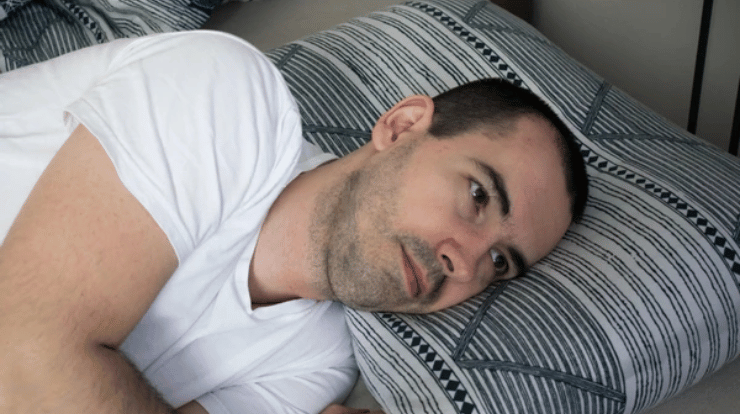
Many people have a question why do babies cry in their sleep? Babies cry in their sleep for a variety of reasons, and it can be concerning for parents who want to ensure their baby is getting the rest they need. While some crying in sleep is normal and expected, it can also be a sign of discomfort, pain, overstimulation, or other issues that require attention.
Understanding the reasons behind a baby’s crying in sleep can help parents identify the best ways to soothe and support their little one, ensuring they get the healthy, restful sleep they need to thrive. In this article, we’ll explore some of the common reasons why babies cry in their sleep and provide tips and strategies for parents to help their babies sleep more peacefully.
10 Reasons Why Do Babies Cry in Their Sleep
Here are the top 10 reasons why do babies cry in their sleep:
1. Discomfort or Pain
Discomfort or pain is one of the most common reasons babies cry in their sleep. This can be due to a number of factors, such as a dirty diaper, hunger, or illness. It’s important for parents to address any discomfort or pain their baby may be experiencing to help them sleep more peacefully.
2. Nightmares
Just like adults, babies can experience nightmares. This can be due to a number of factors such as overstimulation or changes in their environment. While babies don’t have the ability to describe their dreams, parents can help soothe their babies by offering comfort and reassurance.
3. Teething
Teething can be a painful and uncomfortable process for babies. As teeth begin to emerge, babies may experience discomfort and pain in their gums. This can cause them to cry in their sleep, particularly when they are not getting the comfort and attention they need to help them feel better.
4. Overstimulation
Babies can become overstimulated during the day, particularly if they have been exposed to too much noise, light, or other stimuli. This can make it difficult for them to relax and settle down at night, causing them to cry in their sleep. To help prevent overstimulation, parents should establish a calming bedtime routine and limit exposure to screens and other stimulating activities before bed.
5. Separation Anxiety
As babies grow and develop, they can experience separation anxiety. This can be particularly difficult for babies when they are separated from their parents at night. Babies may cry in their sleep due to separation anxiety or may wake up crying shortly after being put to bed. To help ease separation anxiety, parents can establish a consistent bedtime routine and offer comforting items such as a favorite toy or blanket.
6. Hunger
Babies need to eat frequently, particularly during the first few months of life. If a baby is hungry during the night, they may wake up crying in search of food. To help prevent this, parents can establish a consistent feeding schedule during the day and offer a feeding shortly before bedtime.

7. Illness
If a baby is sick or experiencing pain or discomfort due to an illness, it may cry in its sleep. This can be particularly concerning for parents, as it can be difficult to determine the cause of the crying. If a baby is experiencing symptoms such as fever, vomiting, or diarrhea, parents should seek medical attention right away.
8. Temperature
Babies can be sensitive to changes in temperature, particularly if they are too cold or too hot. This can cause them to cry in their sleep, particularly if they are not dressed appropriately for the temperature in their room. To help prevent this, parents should dress their baby in appropriate clothing for the temperature and ensure that their sleeping environment is comfortable.
9. Sleep Regression
Sleep regression is a common phase that many babies go through, typically around four months of age. During this time, babies may experience changes in their sleep patterns, including increased crying at night. To help ease the transition, parents can establish a consistent bedtime routine and offer extra comfort and reassurance during this time.
10. Developmental Milestones
As babies grow and develop, they may experience changes in their sleep patterns. For example, when a baby is learning to crawl or walk, they may wake up during the night to practice their new skills. While this can be challenging for parents, it’s important to remember that it is a normal part of the development and will likely resolve on its own over time. To help ease the transition, parents can offer extra comfort and reassurance, as well as establish a consistent bedtime routine.
What Can Parents Do to Help Their Baby?
If your baby is crying in their sleep, there are several things you can do to help. The first step is to identify the cause of the crying, whether it’s due to discomfort or pain, overstimulation, or other factors. Here are some tips for parents to help their baby sleep more peacefully:
- Establish a consistent bedtime routine: A consistent bedtime routine can help your baby feel more secure and relaxed, making it easier for them to fall asleep and stay asleep.
- Offer comfort and reassurance: When your baby wakes up crying, offer comfort and reassurance by holding them, talking to them, and soothing them with gentle movements.
- Create a comfortable sleeping environment: Make sure your baby’s sleeping environment is comfortable, with appropriate temperature and lighting, and comfortable bedding.
- Limit stimulation before bedtime: To prevent overstimulation, limit your baby’s exposure to screens and other stimulating activities before bedtime.
- Address any discomfort or pain: If your baby is crying in their sleep due to discomfort or pain, address the issue by changing their diaper, feeding them, or offering medicine as needed.
- Consult with your pediatrician: If your baby is crying in their sleep frequently or is experiencing other symptoms such as fever or vomiting, consult with your pediatrician to determine if there may be an underlying medical issue.
In conclusion, babies cry in their sleep for a variety of reasons, ranging from discomfort or pain to overstimulation, nightmares, and developmental milestones. By understanding the underlying causes of crying and implementing strategies to help, parents can help their baby sleep more peacefully and comfortably, setting the foundation for healthy sleep habits that will benefit their baby for years to come.






